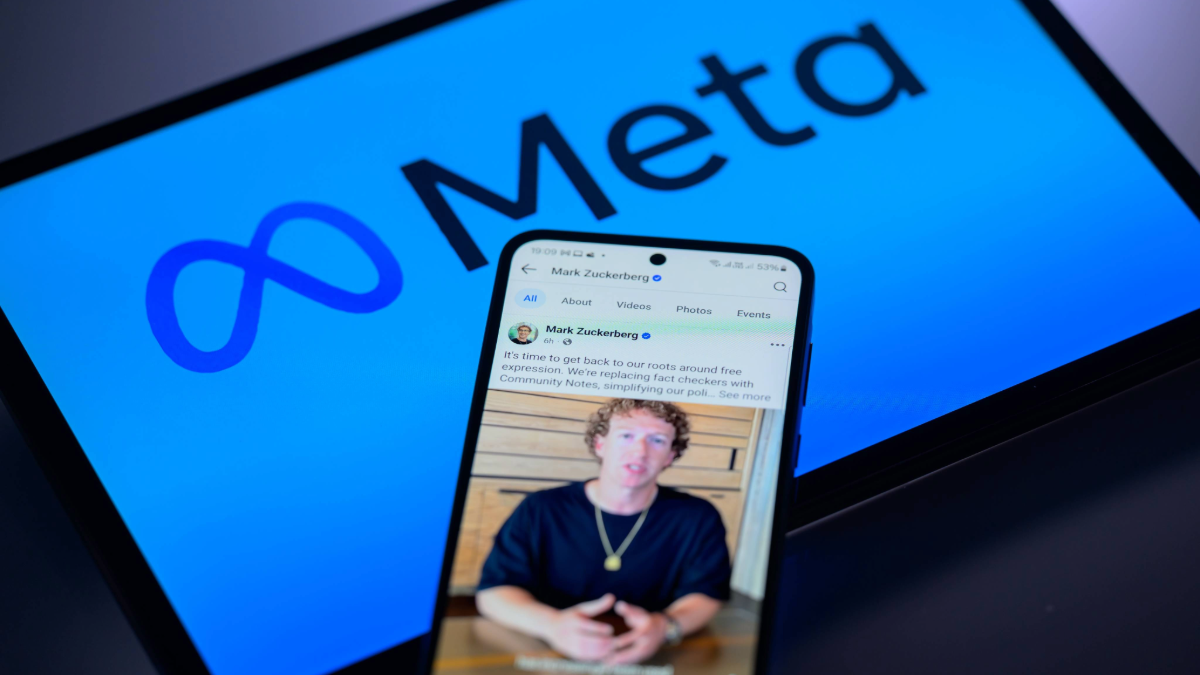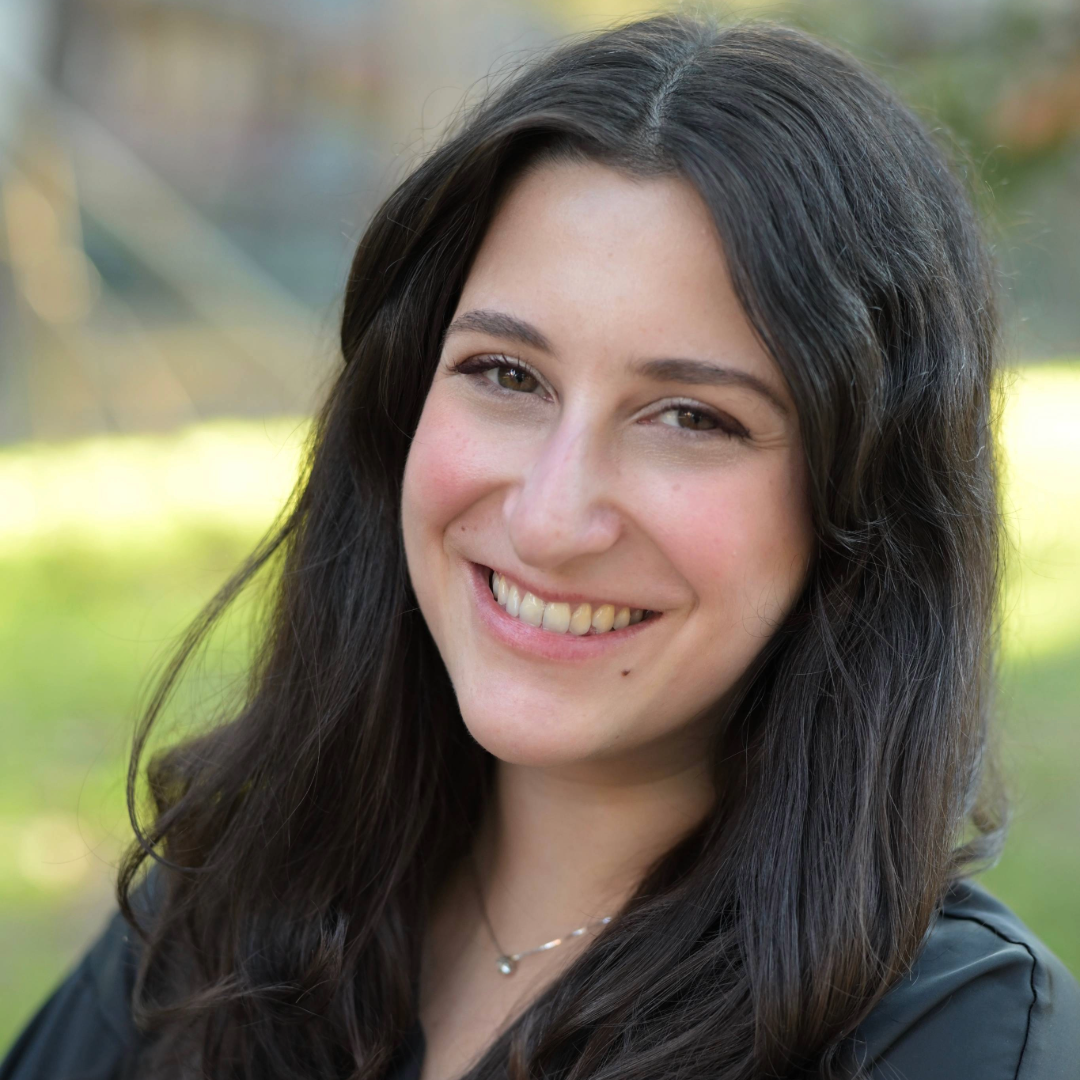When Freedom Bites Back: Meta, Moderation, and the Limits of Tolerance
Giada Pistilli / Jan 21, 2025
Mark Zuckerberg's Facebook account is displayed on a mobile phone with the Meta logo visible on a tablet screen in this photo illustration on January 7, 2025. (Photo by Jonathan Raa/NurPhoto via Getty Images)
Mark Zuckerberg's Meta just made a bet that could reshape the internet as we know it: What happens when a social media giant decides to step back and let its users fight their own information wars? By dismantling significant aspects of its content moderation system, Meta isn't just changing policy – it's running a real-world experiment on the limits of digital freedom. For billions of users worldwide, this experiment could reshape how we experience everything from daily social interactions to political discourse.
At the heart of this transformation lies what philosopher Karl Popper called the "paradox of tolerance" – the notion that unlimited tolerance might ultimately lead to the disappearance of tolerance itself. Meta's bold experiment brings this decades-old philosophical puzzle into sharp contemporary focus.
Meta claims this dramatic pivot—ending its third-party fact-checking program, reducing automated content removal, and loosening restrictions on controversial topics—will correct "mission creep" in content moderation. It cites a 10-20% error rate in content removals—a staggering figure when multiplied across billions of daily posts. While Meta will maintain automated enforcement for serious violations like terrorism and child exploitation, it seems that everything else will be left to users to police themselves.
But this mathematical precision masks a more profound question: in our digital town square, what's more dangerous—potential overreach or systematic under-protection?
This question isn't theoretical. As Meta loosens its grip, we're simultaneously witnessing the opposite extreme with the recent US TikTok ban. Ironically, while American officials craft legislation with loopholes allowing certain government figures to maintain their TikTok access, millions of users are migrating to China's RedNote – a platform known for its strict content restrictions, including censorship of historical events like Tiananmen Square. This stark contrast illustrates how the pendulum of digital freedom can swing dramatically in either direction, often with unintended consequences.
While appealing in theory, Meta's proposed solution—a community-based fact-checking system modeled after X's Community Notes—has proven dangerously slow in practice. Research by AI Forensics shows that corrective notes often appear hours after misinformation goes viral—an eternity in social media time. The French government has already sounded alarm bells, arguing that freedom of expression shouldn't be confused with a "right to virality" that allows unverified content to reach millions without oversight.
AI Forensics director Marc Faddoul also warns that such systems are vulnerable to manipulation, and their requirement for user consensus creates blind spots: while they might work for obvious misinformation, they often fail to address highly polarizing topics where consensus is harder to achieve.
This brings us back to Popper's paradox of tolerance, formulated in 1945, which warns that unlimited tolerance inevitably leads to its own destruction. As Popper argued, if a society extends unlimited tolerance even to those who are intolerant, tolerant people will eventually be destroyed along with tolerance itself. This tension was further explored by philosopher John Rawls, who argued that a just society must fundamentally tolerate the intolerant – otherwise, it would become intolerant and thus unjust. However, he acknowledged that when intolerance poses a concrete threat to democratic institutions, society has a right to self-preservation. Meta's experiment will test both philosophers' theories in real time.
By reducing content moderation and expanding the bounds of acceptable speech, the company behind Facebook and Instagram is essentially betting that more freedom will lead to better outcomes. However, this approach raises several ethical questions:
- Will reduced moderation foster better discourse, or might it spread harmful narratives that could eventually threaten the very openness Meta seeks to protect?
- Can a community-based fact-checking system effectively counter misinformation without falling prey to the same biases Meta criticizes in professional fact-checkers?
- How will these changes affect marginalized communities who often face disproportionate harassment and hate speech online?
The philosophical questions that haunted Plato, Jefferson, and many more thinkers – how to tolerate dissenting opinions and how to protect democracy from its own excesses – have found new life in our digital age. These age-old debates take on new urgency in the digital setting: how do we protect open dialogue while preventing the spread of harmful content? Can we build systems that promote both freedom and responsibility? And perhaps most importantly, how do we ensure that increased tolerance doesn't paradoxically lead to its own demise? While the platforms and technologies may be new, the underlying challenge remains remarkably consistent with what philosophers have grappled with for millennia: finding the sweet spot between absolute freedom and necessary constraints to preserve the freedoms we cherish.
As we watch Meta's experiment unfold, Popper's paradox of tolerance will serve as both a warning and a framework for understanding what happens when we push the boundaries of digital freedom to their limits. The results of this experiment won't just determine Meta's future – they may well shape how democracy functions in the digital landscape.
Authors
